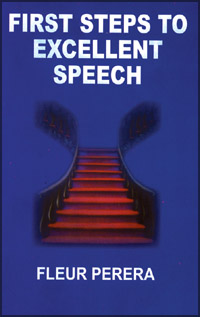|

'Candlelight' poetry evening at Peradeniya
Professor Sunanda Mahendra
POETRY: Tharindu Weerasinghe, a final-year Engineering student
at Peradeniya University, launched his first collection of poems
Candlelight, a few days ago at the EOE Perera auditorium with much
glory.
Quite a number of students and teachers from various faculties and
the well-wishers participated in this unusual event where poetry and
music were blended with a bilingual tone.
With the experience of contributing poems over the years both in
English and Sinhala to various periodicals and newspapers in the
country, Tharindu had the urge to put together most of which he deemed
as publishable into a single volume of a collection and to his credit he
could select fifty of which had gone into this collection.
The subjects cover various human experiences such as love,
motherhood, generation gap, warfare, perils of materialism,
introspections, gifts of nature and aspects of human behaviour. In most
of his creations there is a certain sense of orientalism running like a
thread intertwined.
Tenderness
For example take the opening poem titled 'She is the one who must be
worshipped'. The poet comes to grips with the tenderness of the nuances
of motherhood common to any culture, which is fathomless and the poem
resembles an ode to motherhood or a song in praise of the mother
reminiscent of some of the age old folksongs. Some of the lines go as
follows:
'She is the one who converted
red into white.
She is the one who sustained
a world of pain.
She is the one who sacrificed
her life for us.
She is the one who must be
worshipped.'
In most poems, the poetic diction is not complex as is found in many
a modern poetry, and the underlying meanings and experiences are clearly
expressed as in folk poetry. Some of his poems contain the themes of
inner conflicts where the logic and the emotions are blended. For
instance in the poem titled 'up then down', the poetic comment goes as
follows:
'One day I was proud
Thinking that I am a genius
Another day I was disappointed
Thinking that I am a fool
One day I smiled
Seeing the beauty of the world
Another day I cried
Seeing the harshness of it'.
Creative tradition
More likely to be in the Aesopian creative tradition, Tharindu
Weerasinghe is seen recreating a poem in a parable form. The poems
titled 'Story of hawk' (p 7) and 'A Hidden Truth '(p 14) are two
examples.
The poet shows a sense of futility in money matters in the
materialistic plane of living as against humanistic motives, and this
sense is created in a series of questions in the poem titled 'Money
versus Humanity'(p 9). Some of the lines in the work go as follows:
'There is a man with a good brain
Where is the man with
a good heart?
There is a man with good
creativity
Where is the man with
good spirituality?
There is a man who has money
Where is the man who
has humanity?'
The reader may perhaps feel that most poems envelope religious
susceptibilities and a sense of human values added to expressions
clamouring for a saner social frame as an alternative measure to the
restless dynamic mood in which one lives today. In this direction the
poet Tharindu is self-styled and possesses ingredients of social values
added to his poetic experiences that result at times into a didactic
frame of creation.
He wishes to see that some of the evil conventions around him be
changed. This factor is seen underlined in one of his poems titled 'I am
in the race' (10pp) where the persona of the poem declares.
I see a serene garden filled
with gorgeous flowers.
I am keen on admiring
the beauty.
But I have no time.
I have to run the race'.
Repetitive theme
This factor becomes a repetitive theme in several creations such as
'Is She or She?' (11pp) 'A Hidden Truth' (14 p) and 'Why Do We Fight?'
(25 p). It is said that poetic judgment is most sincere and powerful
when the brevity of a work is considered and adhered to.
Tharindu is an experimentalist as he uses language sometimes directly
and sometimes indirectly perhaps utilizing a formless abstract manner
suitable to his themes presumably drawn from the influence of
technology.
The use of language in poetry is a subject area which has driven to
more controversy than convention. One example is the dialectically
opposed views intermingled as found in the poem titled 'Is She or She?'
where the poet says:
'I like the girl who does not
care me.
I want her to be mine.
I am friendly with the girl
who cares for me.
But I do not want her
to be mine (p 11).
A similar metaphorical expression is found in the poem titled 'Truth
We Do Not Accept but Do Not Remind '[p13]. Poetry, it is stated, is a
comment on social happenings. This depends on the attitude of the poet
towards his experiences encountered. Tharindu utilizes his poetic
persona for the well being of the society and change the face of evils.
This factor is brought to light via his poem titled 'Masks' (p 49),
where it is implied that the humans unlike any other creature has two or
three faces where one is a mask and the other is a face, the real face
and the mask upon it face. The moment of illumination emerges from these
lines:
'We all wear masks.
It is not true if somebody says:
'Face is the reflection of
your heart'.
It is just a mask'.
Yet another cross current one may observe is the attitude of the poet
as a thinker of self-realization emerging as a cathartic expression, and
this factor is regarded as the highest achievement in life. If poetry
can give a positive life force to others (to the reader) this then, is a
commendable beginning. As the critic Cleanth Brooks said: a poem says
what it says.
This implies a number of factors such as the difficulties faced in
the translation process of poetry from one language to another and the
need to teach poetry appreciation as a subject, taking line by line. In
this manner the new poet Tharindu Weerasinghe has taken the first stride
towards the long journey of creativity with the blessings of the Muse.
[email protected]
Aid to effective communication
First Steps to Excellent Speech
Author Fleur Perera
44pp Rs. 350
A Vijitha Yapa publication
Review: Lakshmi Jeganathan
 SPEECH:
I read Fleur Perera's book on "Excellent Speech" with much pleasure. A
past pupil of H.F.C. Bambalapitiya Fleurette Perera (nee' De Silva) an
F.T.C.L. qualified Speech (Elocution) teacher had many students is
Colombo before she migrated with her family to Perth, Australia in the
late 1970's where she continued her teaching career. SPEECH:
I read Fleur Perera's book on "Excellent Speech" with much pleasure. A
past pupil of H.F.C. Bambalapitiya Fleurette Perera (nee' De Silva) an
F.T.C.L. qualified Speech (Elocution) teacher had many students is
Colombo before she migrated with her family to Perth, Australia in the
late 1970's where she continued her teaching career.
In this well planned book she has successfully encapsulated her vast
knowledge of Speech Training, combined with her teaching experience in
two different countries into a short, practical guide to clear speech.
The book can be read, understood and followed with ease. Technical
terms are simply defined and reduced to a minimum. The corrective
exercises given for common speech defects are excellent. It does fulfil
a long felt need.
I strongly recommend it to teachers of Spoken English; Effective
Communication, Drama and Speech; to all students of these subjects; to
their supportive parents; to actors/actresses; to those who wish to be
effective public-speakers/ toast-masters; and to any-one who wishes to
improve his/her communication skills.
The writer is a qualified and
experienced speech instructress (elocution) based in Colombo.
**** |

